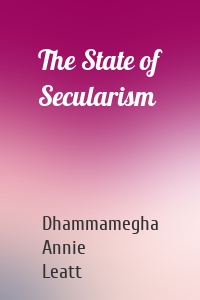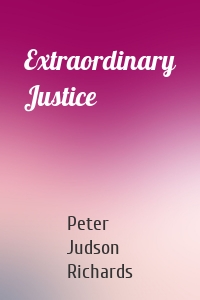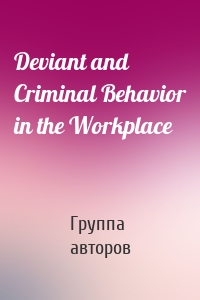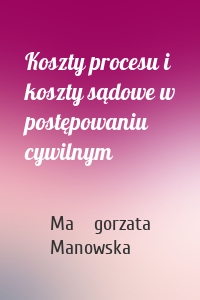Юриспруденция, право
7421 кн.
The State of Secularism
The Dutch Reformed Church, it was said in apartheid South Africa, was the National Party at prayer, and indeed, given that the Bible was so fundamental to much of the legislation that governed the apartheid state, that apparently satirical description had the ring of truth. ?Religion in South Africa?s past?, writes Dhammamegha Annie Leatt has been ?saturated by politics? and politics ?saturated by religion?. So how, she asks, was it possible for a new state to found itself without religious...
| Автор | Dhammamegha Annie Leatt |
Extraordinary Justice
The Al-Qaeda terror attacks of September 11, 2001, aroused a number of extraordinary counter measures in response, including an executive order authorizing the creation of military tribunals or “commissions” for the trial of accused terrorists. The Supreme Court has weighed in on the topic with some controversial and deeply divided decisions, most recently Hamdan v. Rumsfeld . At this critical moment in time, Extraordinary Justice seeks to fill an important gap in our...
| Автор | Peter Judson Richards |
Playing War
The culture that made military shooter video games popular and key in understanding the War on Terror. No video game genre has been more popular or more lucrative in recent years than the “military shooter.” Franchises such as Call of Duty, Battlefield, and those bearing Tom Clancy’s name turn over billions of dollars annually by promising to immerse players in historic and near-future battles, converting the reality of contemporary conflicts into playable,...
| Автор | Matthew Thomas Payne |
Preventive Force
More so than in the past, the US is now embracing the logic of preventive force: using military force to counter potential threats around the globe before they have fully materialized. While popular with individuals who seek to avoid too many “boots on the ground,” preventive force is controversial because of its potential for unnecessary collateral damage. Who decides what threats are ‘imminent’? Is there an international legal basis to kill or harm...
| Автор | Группа авторов |
Please Don't Wish Me a Merry Christ...
Whether in the form of Christmas trees in town squares or prayer in school, fierce disputes over the separation of church and state have long bedeviled this country. Both decried and celebrated, this principle is considered by many, for right or wrong, a defining aspect of American national identity. Nearly all discussions regarding the role of religion in American life build on two dominant assumptions: first, the separation of church and state is a constitutional principle that promotes...
| Автор | Группа авторов |
Commodity Activism
Buying (RED) products—from Gap T-shirts to Apple—to fight AIDS. Drinking a “Caring Cup” of coffee at the Coffee Bean & Tea Leaf to support fair trade. Driving a Toyota Prius to fight global warming. All these commonplace activities point to a central feature of contemporary culture: the most common way we participate in social activism is by buying something. Roopali Mukherjee and Sarah Banet-Weiser have gathered an exemplary group of scholars to...
| Автор | Группа авторов |
In Defense of Single-Parent Familie...
Single-parent families succeed. Within these families children thrive, develop, and grow, just as they do in a variety of family structures. Tragically, they must do so in the face of powerful legal and social stigma that works to undermine them. As Nancy E. Dowd argues in this bold and original book, the justifications for stigmatizing single-parent families are founded largely on myths, myths used to rationalize harshly punitive social policies. Children, in increasing numbers, bear the brunt...
| Автор | Nancy E. Dowd |
Deviant and Criminal Behavior in th...
Workplace crimes are never far from the news. From major scandals like Enron to violent crimes committed by co-workers to petty theft of office supplies, deviant and criminal behavior is common in the workplace. Psychological factors are almost always involved when an employee engages in such behavior. Deviant and Criminal Behavior in the Workplace offers insights at the level of the individual employee and also sheds light on the role organizations themselves may play in fostering such...
| Автор | Группа авторов |
Busting the Mob
Since Prohibition, the Mafia has captivated the media and, indeed, the American imagination. From Al Capone to John Gotti, organized crime bosses have achieved notoriety as anti- heroes in popular culture. In practice, organized crime grew strong and wealthy by supplying illicit goods and services and by obtaining control over labor unions and key industries. Despite, or perhaps because of, its power and high profile, Cosa Nostra faced little opposition from law enforcement. Yet, in the last 15...
| Автор | James B. Jacobs |

























